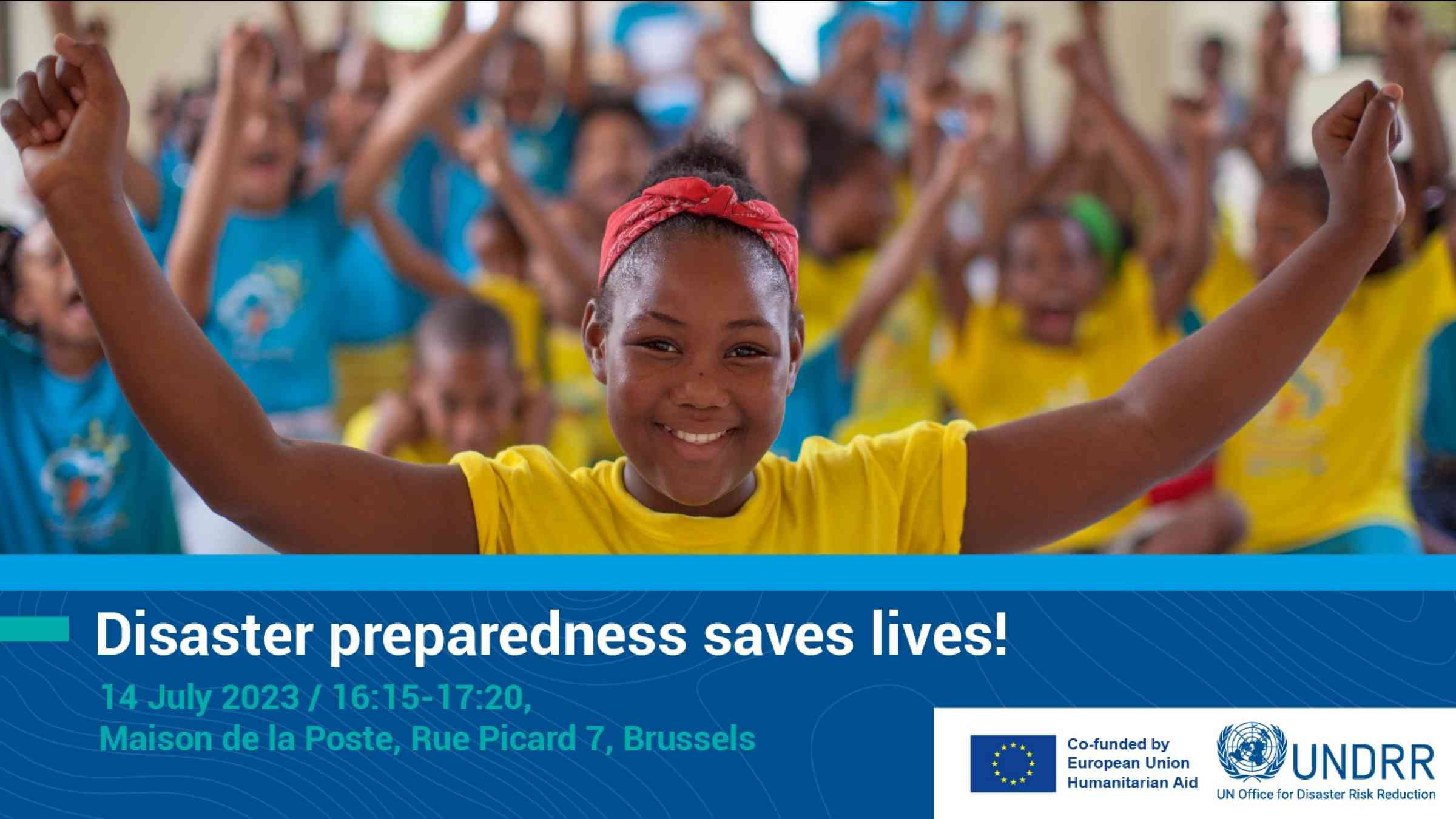UNDRR & DG ECHO: Disaster preparedness saves lives!

Maison de la Poste, Rue Picard 7
- English
- French
- Spanish
Time
16:15-17:20 (GMT+2)
About
The Directorate-General for European Civil Protection and Humanitarian Aid Operations (DG ECHO) has been providing assistance to the Latin American and Caribbean (LAC) region since 1994 in fulfilment of its humanitarian mandate to save and preserve lives, to reduce disaster risk conditions and contribute to building the resilience of people, communities and countries in the region.
During this time, DG ECHO, under its Disaster Preparedness Programme, has invested 344 million euros in 34 countries in LAC through 640 projects, reaching 30 million people in the region, with the participation and involvement of a great diversity of organizations and partners. The disaster preparedness projects supported by DG ECHO are aligned with the goals defined by the countries of the region (either at national or regional level) and reinforce the implementation of the Sendai Framework for Disaster Risk Reduction.
In recent years, in a context marked by the increasing needs created by different complex crises affecting the region, LAC has been severely impacted by several disasters, including the COVID-19 pandemic, the volcanic eruption in St. Vincent and the Grenadines (2021), the 7.2 earthquake in Haiti (2021), the ETA and IOTA hurricanes in the Central American region (2020), and hurricane ELSA in the Caribbean territory (2021), among others. The impact of these events, plus the specific challenges that Small Island Developing States (SIDS) of the Caribbean region are facing, require concerted efforts for the integration of disaster risk reduction into all policies, plans and investment. As stated in the 2021 Regional Assessment Report on Disaster Risk (RAR21), between 1997 and 2017, one out of four disasters in the world occurred in Latin America and the Caribbean. Nine out of ten people affected by these disasters were impacted by weather events (mostly floods, some of which could have been predicted). Seven out of ten disaster related deaths were triggered by a geological hazard (mainly earthquakes).
In this regard, the mid-term review of the Sendai Framework summary findings reports “improvements in cooperation” in terms of preparedness and effectiveness of responses. Likewise, Member States cite “significant gains in enhanced regional cooperation mechanisms”. For instance, in the Americas and Caribbean region, the Regional Response Mechanism was established “to address capacity constraints, including through better pre-positioning of emergency supplies, increasing technical expertise, accessing and reducing overlap of anticipatory financing”.
"Disaster preparedness is especially important in Latin America and the Caribbean. Since 1990, the number of large-scale disasters in the region has almost doubled. In the last six years, since the introduction of the Sendai Framework, the number of people directly and indirectly affected has doubled. Economic losses have grown at an even faster rate, doubling between 2015 and 2020 (RAR 2021)1 . The disaster preparedness projects supported by DG ECHO are aligned with the goals defined by the countries of the region (either national or regional) and reinforce the implementation of the Sendai Framework for Disaster Risk Reduction 2015-2030. To address this complex and systemic risk scenario since 2011, UNDRR and DG ECHO have joined forces in the last decade throughout South America, Central America, and the Caribbean.
Building on these improvements, this event constitutes an opportunity for DG ECHO and UNDRR to showcase the impacts of Disaster Preparedness actions in the region, especially in the context of complex emergencies requiring a better understanding of systemic risks with a critical analysis to ensure long-term sustainability and resilience.
Objectives
- Provide a long term and broader spectrum view on the life-saving role of disaster preparedness (DP) and disaster risk management (DRM) in Latin America and the Caribbean;
Showcase the evolution of the disaster preparedness and emergency response in the region and cooperation, both from the EU and LAC countries, linking up the priorities of the Sendai Framework for Disaster Risk reduction with those of EU-CELAC partnership;
Share key achievements and lessons learnt;
Explore areas of strengthening EU-LAC collaboration on DP and DRM.